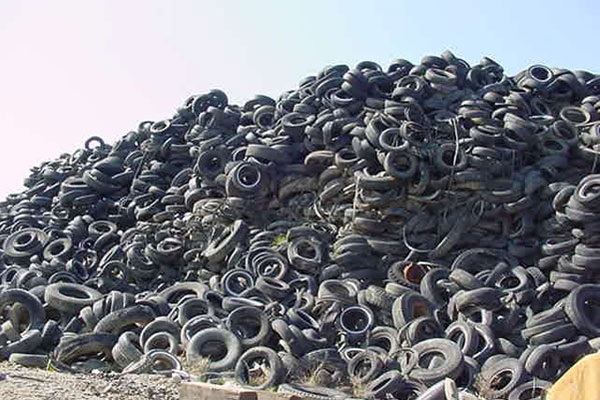Benson Environmental in Sibley has stopped taking in waste tires, and it could have an effect on how tire companies dispose of their waste tires.
Brian Benson, owner, said he stopped taking in new shipments of waste tire material when the Louisiana Department of Environmental Quality could reportedly no longer pay for the materials.
“Typically we get what is called a pro rata share, which means that they take everything that was billed by all the different processors and you get a portion of the money,” Benson said.
He claims the LDEQ exceeded their amount given by the legislative authority, which means they could not pay the recycling companies for the waste tires.
“This means until the new fiscal year begins on July 1, even if they have money, they can’t write checks,” he said.
Alex Collins, owner of A.J. Price Tires, said when this happens the old tires will stack up, because they can’t take them anywhere for disposal.
“Right now, no recyclers are picking up anything,” he said, “and we’re just stacking them up. Last summer, we had a trailer load full, plus two more trailers sitting in the back parking lot, and these are 18-wheeler trailers. That’s pretty significant, and now you’re going to have all tire dealers doing it.”
Disposals are pretty frequent, depending on the amount of business a tire dealer turns each month. Tire companies, such as A.J. Price, usually dispose of their waste tires once per month, Collins said.
LDEQ pays waste tire processors across the state from a self-generating waste tire fund. Tire companies charge customers a $2 waste tire disposal fee when he or she purchases new tires for their vehicle or all-terrain vehicle and that $2 goes into the waste tire fund.
Press Secretary Greg Langley said they recently ran into an issue where several projects came all at once, which took a large portion of the money in the fund toward the end of the year.
“That resulted in a slight delay of the payments, and a lot of the processors stopped taking tires, or at least indicated they were going to quit taking tires,” he said, “however, that issue has been resolved.”
He further explained they reimburse processors when there is an end market for the material.
“We help subsidize that, because unfortunately that type of material is not desirable,” Langley said. “They have some problems sometimes finding end markets for it.”
Theresa Delafosse, LDEQ accounting administrator for the office of management and finance, said if the fund ever runs out of cash, there are parameters in the governing statute that dictate what the LDEQ must do to resolve it.
“Those (invoices) basically stay on the books and we catch up when we can,” she said.
Annually, about $11 million goes into the waste tire fund, with about $1.1 million set aside for administrative costs, Delafosse said.
DEQ officials alluded to ongoing litigation between tire dealers and processors regarding the disposal fee, but they did not delve into the specifics. Langley did say they have never run into a situation where all processors in the state stopped taking waste tires at once.
Benson said since the situation with the LDEQ is being resolved, he is hopeful his company will be paid soon. However, he is still uncertain as to when he will begin taking in waste tires, he said. The company will process the current stock of waste tires as he waits for payment.
“I am cautiously optimistic this will be resolved soon,” he said.




